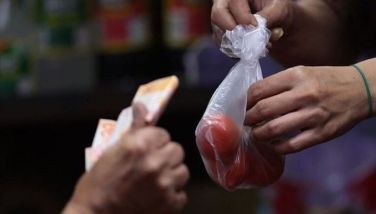Gat Andres Bonifacio's relevance to our nation today
In our campus debates way back in the ‘60s and ’70s, on the proposition that Rizal is the greater hero than Bonifacio, I often heard the statement that Rizal was too much thinking with too little action, and Bonifacio was too much action with too little thinking. I was always on the side of Rizal. Today, I will take the side of Bonifacio.
Today is the 158th birth anniversary of the Father of the Philippine Revolution, Gat Andres Bonifacio, the great plebeian, founder of the Katipunan, who was cheated in the election for president in the Tejeros Convention. He was orphaned at age 14 and had to feed and care for his many siblings by selling paper fans and wooden canes. When he protested the election fraud in Cavite, he was charged with treason, tried by a kangaroo court by his nemesis General Emilio Aguinaldo, who ordered his execution in Mount Maragondon, Cavite. The executioner was Lazaro Macapagal, the ancestor of two former presidents of this country.
Bonifacio did not study in prestigious institutions while Rizal was well-educated in Letran, the University of Santo Tomas, and in the Ateneo de Manila. Bonifacio, unlike Rizal, did not travel abroad. He never went to Madrid, Barcelona, much less to Paris and to many places in Germany, Italy, France, and the United Kingdom. Rizal was showered love, affection and support by his well-to-do parents and his brother, Paciano, who opted not to go to college in order to focus all the help for Jose. Bonifacio had to take care of his brothers and sisters. He worked as a bodegero and later as sales clerk. He belonged to the working class, while Rizal was an ilustrado.
But Bonifacio was a voracious reader. He read Rizal's Noli me Tangere and El Filibusterismo and also the novel Les Miserables. He also read the writings of Alexander Dumas, and many foreign authors. Bonifacio was a self-taught man. When Bonifacio founded the Katipunan as a secret society, he was able to recruit not just the members of the working class in Tondo. He attracted many wealthy Filipinos who found his principles and ideology worth fighting for. In fact, the group of General Emilio Aguinaldo from Cavite came in droves to Tondo and accepted the blood compact as a ritual of initiation into the KKK.
I consider Bonifacio's life and struggles as relevant today because he was cheated in an election and ousted as leader of the group that he founded. Aguinaldo's recruits from Cavite formed the Magdalo Faction, thus Bonifacio's loyalists from Tondo also formed the Magdiwang Faction. Which reminds me of PDP-Laban’s Cusi wing and Pimentel wing. The new entrants to PDP-Laban, called the Cusi faction, took over the mainstream organization and ousted the originals led by Coco Pimentel and Manny Pacquiao. Thus, in the Tejeros Convention, the Magdalo faction controlled the election and even convinced a Magdiwang, Mariano Alvarez, to shift allegiance to a fellow Caviteño, Aguinaldo.
When Bonifacio raised a howl, he was eliminated by summary execution. The executioner was a Macapagal.
Who brokered the entry of Inday Sara to the side of Marcos? Another Macapagal. Déjà vu, or nayabo?
- Latest























